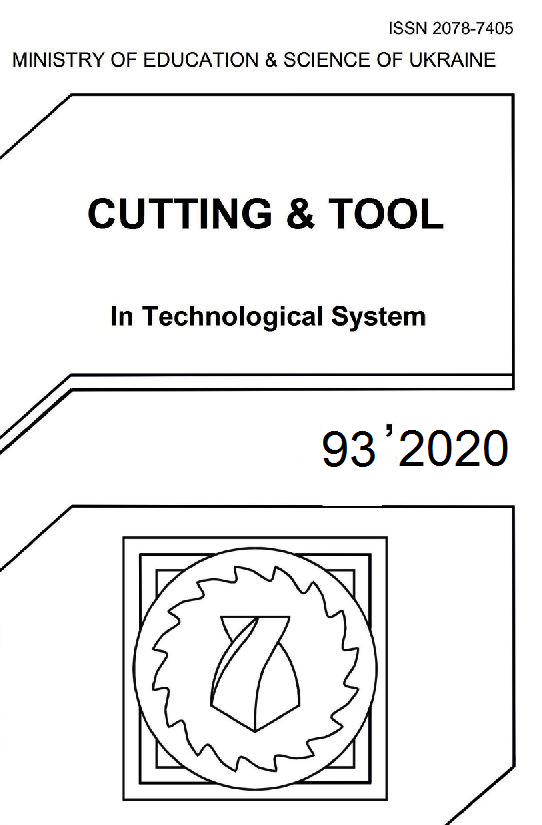METHODS FOR DETERMINING MATURITY EVALUATION SYSTEM IN INDUSTRY 4.0
DOI:
https://doi.org/10.20998/2078-7405.2020.93.02Keywords:
Industry 4.0, lean, digitalization, , autonomy, maturity.Abstract
Nowadays, developments are being started to implement in the companies’ production and logistics systems based on the so-called Industry 4.0 concept as an increasing role. On the one hand, market competition generates this need, but in many cases the use of Industry 4.0 solutions is the main driving force, in order of the truly higher level of automation with significant cost savings. On the other hand, the different levels of development individual companies are an achievement, which is further complicated by different industry characteristics. Therefore, a great benefit can be from developing a methodology that can help across the industry to determine the level of development required to make a particular Industry 4.0 development feasible. Partially laying down the theoretical foundations is the goal of this publication for the creation of such a maturity evaluation system in the field of Industry 4.0.References
Tamás, P.: Application of value stream mapping at flexible manufacturing systems Key Engineering Materials 686 pp 168-173, 2016; https://doi.org/10.4028/www.scientific.net/KEM.686.168
Mayer, V., Kenneth Cukier, S.: Big Data, A revolution that will transform how we live, work, and think, ISBN 978-0-544-00269-2, 2013;
Illés, B., Tamás, P., Dobos, P., Skapinyecz, R.: New challenges for quality assurance of manufacturing processes in industry 4.0, Solid State Phenomena. Vol. 261. Trans Tech Publications Ltd, 2017; https://doi.org/10.4028/www.scientific.net/SSP.261.481
Tamás, P., Bányai, T., Illés, B., Tollár, S., Veres, P., Cservenák, Á., Hardai, I., Skapinyecz, R.: Development Possibilities of the High-tech Logistics Laboratory Established at the Institute of Logistics of the University of Miskolc, Journal of Engineering Research and Reports 13(3), pp. 60-68, 2020; https://doi.org/10.9734/jerr/2020/v13i317127
Bányai T, Petrillo, A, De Felice, F.: Industry 4.0 – impact on intelligent logistics and manufacturing, 1st ed. London: Intech Open, 2020; https://doi.org/10.5772/intechopen.76554
Colli, M., Madsen, O., Berger, U., Møller, C., Wæhrens, BV.: Contextualizing the outcome of a maturity assessment for Industry 4.0., Ifac-papersonline vol. 51(11), pp. 1347-1352., 2018; https://doi.org/10.1016/j.ifacol.2018.08.343
Caiado, R. G. G., Scavarda, L. F., Gavião, L. O., Ivson, P., Nascimento, D. L. D. M., Garza-Reyes, J. A.: A fuzzy rule-based industry 4.0 maturity model for operations and supply chain management, International Journal of Production Economics, vol. 231, 2021; https://doi.org/10.1016/j.ijpe.2020.107883
Rafael, L. D., Jaione, G. E., Cristina, L., Ibon, S. L.: An Industry 4.0 maturity model for machine tool companies, Technological Forecasting and Social Change, vol. 159, 2020; https://doi.org/10.1016/j.techfore.2020.120203
Ganzarain, J., Errasti, N.: Three stage maturity model in SME’s towards industry 4.0, Journal of Industrial Engineering and Management, 9 (5), pp. 1119-1128, 2016; https://doi.org/10.3926/jiem.2073
Bibby, L., Dehe, B.: Defining and assessing industry 4.0 maturity levels–case of the defence sector, Production Planning and Control, 29 (12), pp. 1030-1043, 2018; https://doi.org/10.1080/09537287.2018.1503355
de Souza, S.S., Santiago, S.B., de Amorim Francisco Soares Filho, A., de Mendonça, M.B., Oliveira, F.L.: Metanalysis of industry 4.0 maturity models, Interciencia, vol. 45 (8), pp. 397-401, 2020.
Downloads
Published
Issue
Section
License
Copyright Notice
Authors who publish with this Collection agree to the following terms:
1. Authors retain copyright and grant the Collection right of first publication with the work simultaneously licensed under a Creative Commons Attribution License that allows others to share the work with an acknowledgement of the work's authorship and initial publication in this Collection.
2. Authors are able to enter into separate, additional contractual arrangements for the non-exclusive distribution of the Collection's published version of the work (e.g., post it to an institutional repository or publish it in a book), with an acknowledgement of its initial publication in this Collection.
3. Authors are permitted and encouraged to post their work online (e.g., in institutional repositories or on their website) prior to and during the submission process, as it can lead to productive exchanges, as well as earlier and greater citation of published work.

